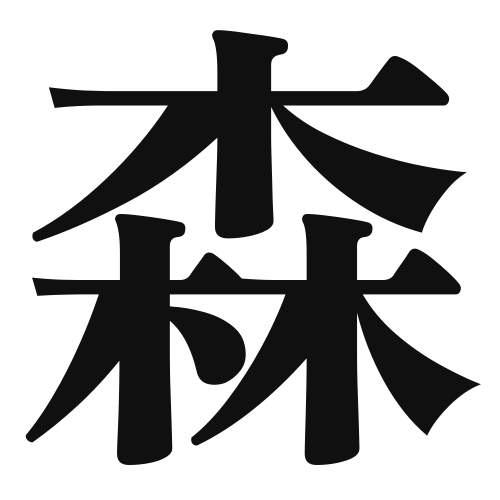1. Overview of Meaning
The kanji “森” (pronounced “mori” in Japanese) means “forest.” It represents a large area covered chiefly with trees and undergrowth, symbolizing nature and tranquility.
2. Formation and Radical
Formation of the Kanji: The kanji “森” is a compound character made up of three instances of the kanji “木” (tree). This structure emphasizes the idea of a dense area filled with trees, illustrating the concept of a forest.
Radical: The radical for “森” is “木” (tree), which is commonly associated with nature and plant life.
3. Examples of Usage
Common Words and Phrases: Some frequently used words that include “森” are:
- 森林 (しんりん, shinrin) – forest
- 森の中 (もりのなか, mori no naka) – in the forest
Example Sentences in Daily Conversation:
- 「私たちは森にハイキングに行きます。」(We are going hiking in the forest.)
- 「森の中で静かな時間を過ごしました。」(I spent a peaceful time in the forest.)
4. Synonyms and Antonyms
Similar Kanji: A similar kanji is “林” (はやし, hayashi), which means “grove” or “woods.” The difference lies in scale; “林” refers to a smaller area of trees compared to “森.”
Opposite Kanji: An antonym could be “砂漠” (さばく, sabaku), meaning “desert,” which represents a barren area devoid of trees and vegetation.
5. Cultural and Historical Background
Relation to Japanese Culture: In Japanese culture, forests are often seen as sacred spaces, associated with Shinto beliefs and nature worship. They are places of beauty and spiritual significance.
Proverbs and Idioms: One common saying is “森は心のオアシス” (The forest is an oasis for the heart), highlighting the calming and restorative qualities of nature.
